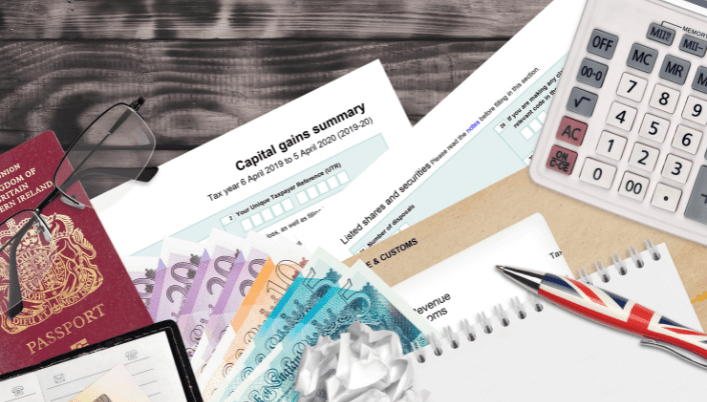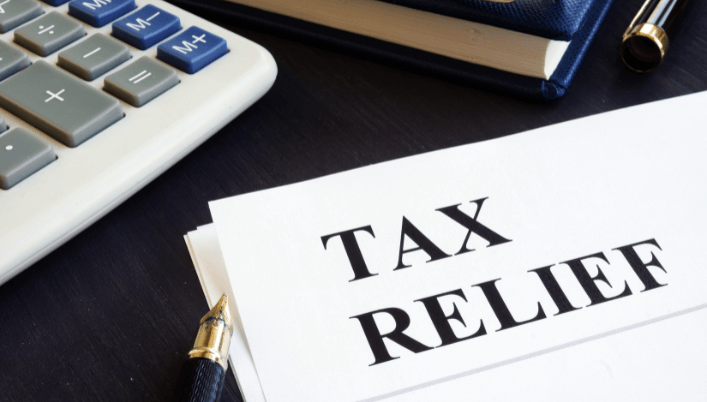Income Tax Relief in Singapore 2023

What is Income Tax Relief?
Income Tax Relief refers to deductions or allowances that individuals can claim to reduce their taxable income in Singapore.
These tax reliefs are provided by the government as a way to incentivize certain behaviors, support specific initiatives, or relieve financial burdens for taxpayers.
Income Tax Relief in Singapore is a comprehensive system designed to alleviate the financial burden on individuals and encourage responsible financial behaviors and socio-economic contributions.
It involves a reduction of an individual’s tax liability, based on various criteria such as their salary, nature of expenses, and personal circumstances.
For Singaporean employees, remuneration constitutes employment income, making it subject to personal income tax.
However, certain deductions and reliefs are applicable diminish the burden of taxation.
For instance, a subsequent child might bring about child-related tax reliefs or parent relief tax breaks.
This can also include filial piety relief if one is taking care of aged parents.
Donors who make cash donations to approved charitable institutions may be eligible for deductible donations relief.
For handicapped spouses, there is Handicapped Spouse Relief that provides additional help.
Married women and men can also claim reliefs for their respective roles.
The treatment of capital and capital gains in Singapore is worth noting.
These are generally not taxable unless they are considered revenue or income from employment.
Various other costs and expenditures may qualify for relief under certain circumstances.
Education expenses, such as tuition and examination fees, may be deductible, provided these contribute to the acquisition of vocational qualifications pertinent to one’s current employment.
There are specific reliefs for mandatory CPF contributions made and voluntary cash contribution to one’s CPF Special Account or Medisave Account.
Insurance premiums, like the ones paid for life insurance policies, can bring about tax relief as well, with restrictions around income capping rules and maximum relief achievable.
Costs relating to official employment duties, such as renovation and travel costs, are eligible for relief too.
Income tax relief in Singapore also extends to Investments.
Investments into approved Instruments like units in unit trusts could qualify for tax relief.
CPF top-ups, annual insurance premiums, and Medisave top-ups also contribute towards the relief on contributions made.
Permanent residents and those working in national service roles may also take advantage of reliefs customized for their particular circumstances.
Furthermore, expenses of a private nature, like credit card and telecommunication charges, are generally not deductible against employment income.
Types of Income Tax Relief in Singapore
There are various types of income tax relief available in Singapore, each targeting different aspects of an individual’s life.
Some common types include:
- Employment-related: Reliefs such as CPF contribution relief, NSman self-employed relief, and working mother’s child relief.
- Education-related: Relief for course fees, foreign maid levy relief for children studying in Singapore, and relief for qualifying donations made to educational institutions.
- Family-related: Reliefs such as parenthood tax rebate, handicapped siblings relief, and qualifying child relief.
- Healthcare-related: Relief for elderly parents caregiver, disability, or handicapped person.
Taking advantage of these tax reliefs can help individuals maximize their tax savings and overall financial well-being.
How to Claim Income Tax Relief in Singapore
To claim income tax relief in Singapore, individuals need to declare their eligible expenses or contributions when filing their annual income tax returns.
These claims can be made through the Inland Revenue Authority of Singapore (IRAS) website or by filling out the relevant sections in the tax form.
It is crucial to keep proper records and supporting documents for all tax relief claims, as the IRAS may request verification or documentation if necessary.
http://www.youtube.com/watch?v=BxhNHLsZHto
In conclusion, understanding income tax relief in Singapore is essential for individuals to optimize their tax savings.
By taking advantage of the available reliefs and following the proper procedures for claiming, individuals can effectively reduce their taxable income and potentially receive significant tax benefits.
Key Takeaways
- Income Tax Relief Basics: Income Tax Relief in Singapore involves deductions or allowances to reduce taxable income, encouraging specific behaviors and relieving financial burdens.
- Types of Tax Reliefs: There are various types of tax reliefs, including employment-related, education-related, family-related, and healthcare-related reliefs.
- How to Claim Tax Relief: Individuals should declare eligible expenses or contributions when filing their income tax returns and keep proper records for verification.
- Personal Income Tax Relief Cap: Singapore has a cap limiting the total amount of tax relief claims, encouraging responsible use of deductions.
- List of Tax Reliefs: Common tax reliefs include CPF contributions, Earned Income Relief, and Parenthood Tax Rebate.
- Optimizing Tax Relief Claims: To maximize tax savings, assess eligibility, track contributions, consult experts, and stay updated on tax laws.
- Parenthood Tax Relief: Parenthood Tax Relief supports families by offering tax deductions for child-related expenses.
- Eligibility for Parenthood Tax Relief: To qualify, you must be a tax resident, and the child must be below 16 years old. Both parents’ income should not exceed the threshold.
- How to Claim Parenthood Tax Relief: Include child-related expenses in your income tax return and keep receipts as proof.
- Life Insurance Relief: Life Insurance Relief allows tax deductions on premiums paid for policies covering death, disability, or critical illness.
Personal Income Tax Relief Cap: Personal Reliefs

What is the Personal Income Tax Relief Cap?
In Singapore, the Personal Income Tax Relief Cap refers to the maximum amount of tax relief that an individual can claim for various expenses and contributions to reduce their taxable income.
This cap ensures that individuals are not able to claim unlimited amounts of tax relief, but rather encourages responsible and reasonable use of these deductions.
List of Personal Income Tax Reliefs in Singapore
There are several tax reliefs available in Singapore that individuals can consider when optimizing their income tax relief claims.
Some common tax reliefs include:
- CPF (Central Provident Fund) Contributions
- Supplementary Retirement Scheme (SRS) Contributions
- Earned Income Relief
- Parent Relief
- Course Fees Relief
- Handicapped Child Relief
- NSman(Self/Wife/Parent) Relief
- Qualifying Child Relief
- Qualifying Handicapped Child Relief
- SRS Relief
- Parenthood Tax Rebate
These reliefs can significantly reduce an individual’s taxable income and result in substantial tax savings.
It is important to note that the Personal Income Tax Relief Cap applies to the total amount of combined tax relief claims.
How to Optimize Your Income Tax Relief Claims
To optimize your income tax relief claims and maximize your tax savings, it is crucial to plan and understand the available tax reliefs.
Here are some strategies to consider:
- Assess your circumstances and determine which tax reliefs you are eligible for.
- Keep track of your contributions and expenses throughout the year to ensure accurate claims.
- Consult a tax professional or use tax planning tools to explore different scenarios and identify the most effective way to optimize your tax relief claims.
- Regularly review changes in tax laws and regulations to stay informed about new opportunities for tax savings.
http://www.youtube.com/watch?v=VIIRkRlKVik
By leveraging the available tax reliefs and optimizing your income tax relief claims, you can effectively reduce your taxable income, resulting in lower tax obligations and potential savings.
Parenthood Tax Relief in Singapore: Parenthood Tax Rebate

Parenthood Tax Relief is a valuable benefit provided by the Singapore government to support families in their journey of raising children.
This tax relief serves as a form of income tax relief for parents, helping to ease their financial burden.
Let’s explore what Parenthood Tax Relief is, who is eligible for it, and how to claim it.
What is Parenthood Tax Relief?
Parenthood Tax Relief is a tax relief scheme that allows qualifying parents in Singapore to enjoy tax deductions for their child-related expenses.
It aims to acknowledge the costs associated with raising children and provide financial support to parents.
Under this scheme, eligible parents can claim tax relief for expenses such as childcare fees, medical expenses, and education fees.
Eligibility for Parenthood Tax Relief
To qualify for Parenthood Tax Relief, you must meet certain criteria.
Firstly, you must be a Singapore tax resident and either the child’s natural parent, adoptive parent, or legal guardian.
The child should be below 16 years old, and you must have supported the child during the year in question.
Additionally, both parents should not have exceeded the income threshold for the relief.
How to Claim Parenthood Tax Relief
To claim Parenthood Tax Relief, you need to include the necessary information in your annual income tax return.
You should specify the relevant expenses incurred for your child, such as childcare expenses or medical expenses.
Make sure to keep receipts and supporting documents as proof of your expenses.
Overall, Parenthood Tax Relief provides valuable financial support to parents in Singapore.
By claiming this relief, parents can enjoy income tax savings and alleviate some of the costs associated with raising children.
It’s essential to understand the eligibility criteria and keep accurate records to maximize the benefits of Parenthood Tax Relief.
Life Insurance Relief in Singapore: Parent Relief

What is Life Insurance Relief?
Life Insurance Relief is a scheme provided by the Inland Revenue Authority of Singapore (IRAS) that aims to encourage individuals to protect themselves and their families through life insurance coverage. Year of assessment foreign domestic worker levy Singapore citizen.
Under this scheme, individuals can enjoy tax relief on the premiums paid for qualifying life insurance policies.
Eligibility for Life Insurance Relief
To qualify for Life Insurance Relief, individuals must meet the following criteria:
- Hold a life insurance policy that provides coverage for death, disability, or critical illness.
- Be the policyholder or the life assured under the policy.
- Be a tax resident in Singapore for the year in which the relief is claimed.
It is important to note that premiums paid for life insurance policies that do not provide coverage for death, disability, or critical illness are not eligible for tax relief.
How to Claim Life Insurance Relief
To claim Life Insurance Relief, individuals should follow these steps:
- Keep track of the premiums paid for qualifying life insurance policies throughout the year.
- Include the total amount of premiums paid in the “Reliefs, Deductions, and Parenthood Tax Rebate” section of their income tax return.
- Ensure that the supporting documents, such as premium payment receipts and policy statements, are kept for record-keeping purposes.
By claiming Life Insurance Relief, individuals can lower their taxable income and potentially reduce their income tax liability.
In conclusion, Life Insurance Relief in Singapore provides individuals with an opportunity to enjoy tax relief on premiums paid for qualifying life insurance policies.
It is important to meet the eligibility criteria and properly claim the relief to benefit from this scheme.
Other Tax Reliefs and Rebates in Singapore: Chargeable Income Tax Savings

Singapore offers various tax reliefs and rebates to help individuals and businesses manage their tax liabilities.
These reliefs and rebates can help reduce the amount of income tax payable, ultimately providing more financial flexibility.
Here are some key tax reliefs and rebates available in Singapore.
Course Fees Relief
Individuals who pursue approved courses at recognized educational institutions can enjoy course fee relief.
This relief allows individuals to claim a deduction on their income tax for the course fees paid.
The deduction amount depends on the individual’s tax bracket and the course fees paid.
Married Couples and Families Relief
Married couples and families can benefit from tax relief that helps reduce their income tax liability.
This relief includes tax deductions for the spouse, child relief, handicapped child relief, and parent relief.
These reliefs help ease the financial burden on married couples and families, making it easier to manage their taxes.
Tax Reliefs for Self-Employed Individuals
Self-employed individuals in Singapore can also enjoy tax relief to help them manage their income tax.
These reliefs include deductions for expenses incurred in the course of running their business, such as office rental, utilities, and business-related travel expenses.
Self-employed individuals can also claim the Central Provident Fund (CPF) Medisave relief and CPF self-employed voluntary contributions relief.
By taking advantage of these tax reliefs and rebates, individuals and businesses in Singapore can effectively manage their income tax liabilities and enjoy more financial flexibility.
It is important to consult with a tax professional or refer to the Inland Revenue Authority of Singapore (IRAS) website for specific details and eligibility criteria for each relief.
Conclusion
Income Tax Relief in Singapore: Maximizing Benefits and Minimizing Taxes
Understanding the concept of income tax relief in Singapore is essential for individuals seeking to optimize their tax benefits and reduce their overall tax liability.
The Singapore government has introduced various types of tax reliefs to provide individuals with opportunities to save on taxes and support specific causes.
It is important to note that while tax reliefs can unduly reduce taxable income, they are subjected to qualifying conditions and limitations.
Therefore, it is crucial to familiarize oneself with the eligibility criteria and ensure compliance with the tax regulations.
One significant tax relief is the CPF Cash Top-Up Relief.
Starting from 1 January 2024, eligible individuals can claim this relief for cash top-ups made to their CPF accounts, benefiting from tax savings while bolstering their retirement funds.
For individuals with children who are Singapore-born or adopted on or after 1 January 2024, the Parent Relief for YA is a substantial tax relief that helps ease the financial burden of raising a child.
This relief can be claimed for each child born or adopted, reducing the taxable income and consequently, the tax amount owed.
It is worth mentioning that while total personal reliefs can help reduce taxable income, it is important to seek professional advice to ensure proper optimization while remaining compliant with the tax system.
To reduce the tax payable, individuals can explore various avenues.
Claiming parent relief, maximizing the use of deductible expenses, and taking advantage of available relief are some strategies that individuals can employ to minimize their tax liability.
It is crucial to stay updated with the latest changes to the tax regime, as the government regularly introduces amendments and adjustments in the tax laws.
These changes may affect the types of reliefs given, their maximum tax limits, and other aspects of the tax system.
In conclusion, individuals in Singapore have the opportunity to benefit from various income tax reliefs.
By understanding the eligibility criteria and exploring different ways to optimize these benefits, individuals can reduce their tax burden while contributing to their financial well-being.
Seeking professional advice and staying informed about changes to the tax system will enable individuals to navigate the tax landscape effectively and make the most of the available income tax relief opportunities.
For more information on income tax relief in Singapore, you can refer to the official websites of the Inland Revenue Authority of Singapore (IRAS) and the Ministry of Finance (MOF), which provide detailed guidelines and resources to help individuals understand and utilize the available tax reliefs
Frequently Asked Questions
What is income tax relief?
Income tax relief refers to deductions that can be made from your taxable income to lower your overall tax liability.
What are the most common types of income tax relief?
The most common types of income tax relief include deductions for course fees, personal reliefs, rental income, and qualifying donations.
How do I qualify for income tax relief?
To qualify for income tax relief, you must meet specific criteria outlined by the tax authorities.
These criteria may include factors such as your employment status, marital status, and the amount of assessable income you earn.
What is a tax deduction?
A tax deduction is a specific amount that can be deducted from your total taxable income, resulting in a lower tax liability.
How can I claim tax deductions for qualifying donations?
To claim tax deductions for qualifying donations, you must provide the necessary documentation to prove that your donations meet the eligibility requirements set by the tax authorities.
Can working mothers qualify for tax relief?
Yes, working mothers can qualify for various tax reliefs, including deductions for childcare expenses and the working mother’s earned income relief.
When is the tax season in Singapore?
The tax season in Singapore typically begins on 1 January and ends on 18 April.
How is the amount of personal tax relief calculated?
The amount of personal tax relief is calculated by adding up the total amount of all tax deductions and reliefs you are eligible for and subtracting this amount from your chargeable income.
Can married couples and families qualify for tax relief?
Yes, married couples and families can qualify for various tax reliefs, including the parenthood tax rebate and the grandparent caregiver relief.
When will the new tax rules for 2022 come into effect?
The new tax rules for 2022 will come into effect on 1 January 2022.












